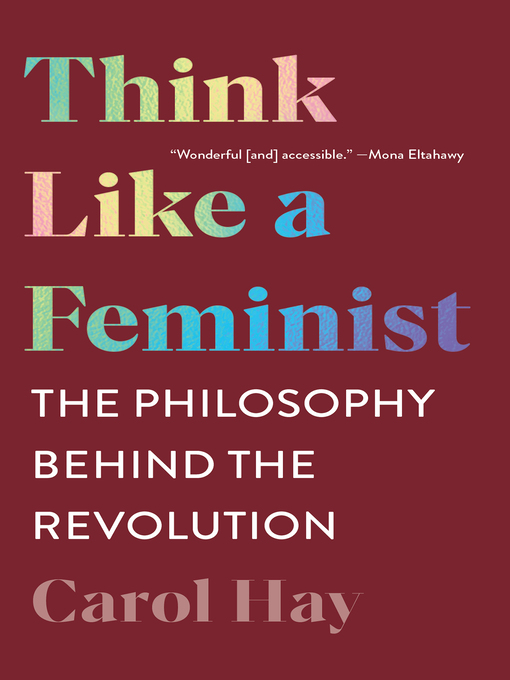An audacious and accessible guide to feminist philosophy—its origins, its key ideas, and its latest directions.
Think Like a Feminist is an irreverent yet rigorous primer that unpacks over two hundred years of feminist thought. In a time when the word feminism triggers all sorts of responses, many of them conflicting and misinformed, Professor Carol Hay provides this balanced, clarifying, and inspiring examination of what it truly means to be a feminist today. She takes the reader from conceptual questions of sex, gender, intersectionality, and oppression to the practicalities of talking to children, navigating consent, and fighting for adequate space on public transit, without deviating from her clear, accessible, conversational tone. Think Like a Feminist is equally a feminist starter kit and an advanced refresher course, connecting longstanding controversies to today's headlines.
Think Like a Feminist takes on many of the essential questions that feminism has risen up to answer: Is it nature or nurture that's responsible for our gender roles and identities? How is sexism connected to racism, classism, homophobia, transphobia, and other forms of oppression? Who counts as a woman, and who gets to decide? Why have men gotten away with rape and other forms of sexual violence for so long? What responsibility do women themselves bear for maintaining sexism? What, if anything, can we do to make society respond to women's needs and desires?
Ferocious, insightful, practical, and unapologetically opinionated, Think Like a Feminist is the perfect book for anyone who wants to understand the continuing effects of misogyny in society. By exploring the philosophy underlying the feminist movement, Carol Hay brings today's feminism into focus, so we can deliberately shape the feminist future.

